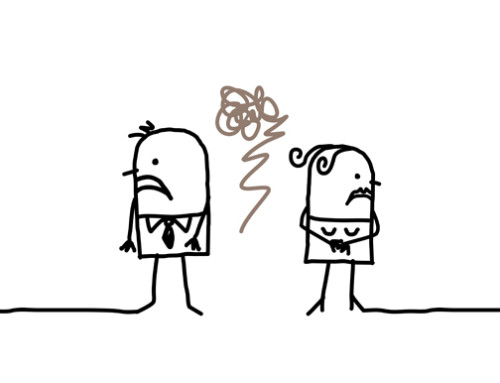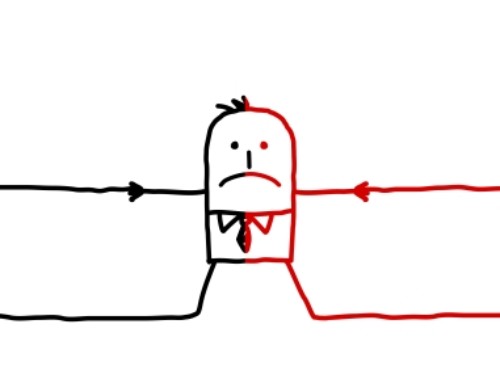In this article, I discuss how relationship requests which are unreasonable become reasonable in the wake of an affair.
In my work as a Calgary psychologist and a Cochrane psychologist, I often work with couples in relationship counselling whose goal is to rebuild their relationship in the wake of one partner having had an affair. In these situations, one of the biggest challenges is for both partners to be patient with the healing process. For the hurt partner, this means understanding that it will necessarily take a lot of time to heal from the hurt and to regain trust in the unfaithful partner.
For the unfaithful partner, patience entails understanding that the hurt partner is not likely to quickly get over the hurt and regain trust in them. Having said that, there are strategies both partners can follow to facilitate this slow process of healing and rebuilding trust. These strategies are detailed by Dr. Janis Spring in her landmark book, After the Affair.
One such strategy I’ve helped many couples use is to have the hurt partner make specific requests of the unfaithful partner which they believe will make it easier for them to heal and slowly regain trust. In the following sections, I will provide examples of such requests. While doing so, I will discuss why the unfaithful partner’s view of ordinarily unreasonable requests as reasonable is pivotal to this strategy of promoting healing and rebuilding trust.
Why behavioural requests facilitate healing and rebuilding of trust
Having the hurt partner make behavioural requests and having the unfaithful partner do their best to act on the requests facilitates healing and rebuilding of trust in several ways. First, it gives both partners something they can focus on and have control over during the long and difficult ‘after the affair’ period. Secondly, it helps the hurt partner by letting them specify exactly what they need from the unfaithful partner to help them slowly trust again. Third, it helps the unfaithful partner in their efforts to do whatever they can to try to slowly regain the trust of the hurt partner. Fourth, it makes it easier for the unfaithful partner to perform behaviours which they know will be helpful rather than their having to guess at which behaviours will be helpful or unhelpful.

Reframing ‘unreasonable’ requests by the hurt partner
An obstacle which sometimes arises in executing this process is the unfaithful partner expressing reluctance to do the behaviours requested by the hurt partner because they are ‘unreasonable’. To be fair, many of the behaviours requested by the hurt partner may well appear to be unreasonable at first glance. For example, the hurt partner may ask that the unfaithful partner check in with them by phone or text multiple times each day or evening when they are apart from each other.
This request may be unreasonable were it not for the affair having occurred. In the wake of an affair in which the hurt partner’s trust in the unfaithful partner has been shattered, such a request becomes reasonable. In fact, this and other behavioural requests being acted upon by the unfaithful partner are pivotal to the hurt partner healing and slowly regaining trust. If the unfaithful partner can reframe the requests from ‘unreasonable’ to ‘reasonable given the circumstances and important to my partner’s healing and regaining trust in me’, they are more likely to have the patience and perseverance to act on these requests.
The challenges and benefits of responding to ‘high cost’ requests by the hurt partner
It becomes more challenging for the unfaithful partner to respond favourably to requests by the hurt partner which Dr. Spring describes as ‘high cost behaviours’. These are behaviours which require significant time, effort and/or sacrifice by the unfaithful partner. An example would be the hurt partner asking the unfaithful partner to quit their job if the person with whom they had the affair is a co-worker.
Not surprisingly, the unfaithful partner will tend to be more reluctant to agree to high-cost behavioural requests than to low-cost requests such as the example I mentioned of being asked to call or text more frequently when they are away from the hurt partner. When I encounter such reluctance, I tell the unfaithful partner that their agreeing to high-cost behavioural requests can have a significant positive effect on the hurt partner healing and regaining their trust.
One reason for this is that the hurt partner will often view it as important for the unfaithful partner to make the sacrifices inherent in performing high-cost behaviours as a way of atoning for the significant pain and hurt they inflicted on them by having the affair. Conversely, if the unfaithful partner does not respond favourably to high-cost behavioural requests because they are ‘unreasonable’, the likelihood of the hurt partner healing and regaining their trust decreases significantly. In turn, the chances that the relationship will continue also go down markedly. As such, it is critical for the unfaithful partner to reframe these ‘unreasonable’ requests as reasonable if their goal is to remain in the relationship with the hurt partner.
If you and your partner are trying to rebuild your relationship in the wake of an affair, you may find it helpful to work with a psychologist who can guide you in implementing strategies like those in this article which will help you in this endeavour.
May you view what appears to be unreasonable as reasonable when it is reasonable to do so,
Dr. Pat






Leave A Comment